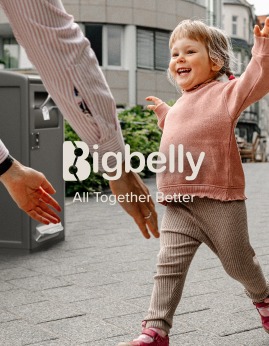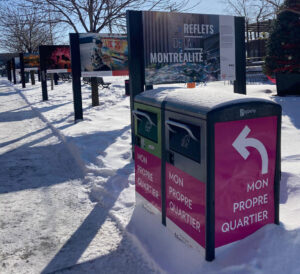The University of California at Berkeley is committed to achieving Zero Waste by 2020. This campus is setting the tone and pace for other college and universities to follow. UC Berkeley’s most recent related initiative is ‘Zero Waste at Chou Hall’ – a campus building in the Haas School of Business that is progressing towards Zero Waste Certification and sharing best practices along the way.
Chou Hall Background – In 2017 Haas unveiled its newest building, the Connie & Kevin Chou Hall, an 80,000 square foot, state-of-the-art facility dedicated to student learning. Designed for LEED Platinum and WELL certifications, Chou Hall is also the first business school building registered to attain Zero Waste certification by Fall 2018. The building will serve as a model for environmental sustainability at UC Berkeley and represents a critical step toward the University of California’s Zero Waste by 2020 and Carbon Neutrality by 2025 goals. The Zero Waste certification program is a partnership between Students, Staff, and Faculty from the College of Natural Resources and Haas School of Business. The Zero Waste Certification project is led by a multidisciplinary team of students and staff working closely with Cal Zero Waste, Haas faculty & staff, facilities management, and building vendors to ensure that building operations are designed for successful waste diversion. They are working to educate students, faculty, and staff on the importance of the initiative and how to fully utilize the space while achieving zero-waste. The building has no landfill bins and a “pack-in, pack-out” mentality will be cultivated among users: any waste brought in will need to be brought out and disposed of by the user. Instilling this mentality can have broad reaching impacts beyond the Berkeley campus. As the project proceeds, an in-depth best practices manual will be developed to help scale the initiative throughout the UC campus system. Learn more from UC Berkeley here…
The Zero Waste Certification project is led by a multidisciplinary team of students and staff working closely with Cal Zero Waste, Haas faculty & staff, facilities management, and building vendors to ensure that building operations are designed for successful waste diversion. They are working to educate students, faculty, and staff on the importance of the initiative and how to fully utilize the space while achieving zero-waste. The building has no landfill bins and a “pack-in, pack-out” mentality will be cultivated among users: any waste brought in will need to be brought out and disposed of by the user. Instilling this mentality can have broad reaching impacts beyond the Berkeley campus. As the project proceeds, an in-depth best practices manual will be developed to help scale the initiative throughout the UC campus system. Learn more from UC Berkeley here…
In November, leaders from the UC Berkeley’s Zero Waste team participated in the Zero Waste at Colleges and Universities Workshop and at the annual Greenbuild conference, the world’s largest conference and expo dedicated to green building. Their sessions showcased their blueprint towards Zero Waste at Chou Hall and best practices to consider for other campuses striving to achieve similar results.
We attended the Greenbuild panel session discussing ‘Zero Waste Planning for Universities and Businesses‘ on which Lin King, Zero Waste Manager at University of California Berkeley, shared expertise, insights, and lessons learned in their progress thus far with Zero Waste. Lin leads Cal Zero Waste at UC Berkeley, is the Chair of the newly created Zero Waste College and University Technical Committee under the Zero Waste Program of the USGBC, and on the Board of the California Collegiate Recycling Council under the California Resource Recovery Association. His expertise is clear and we are excited to be working alongside him and the rest of the Cal Zero Waste team.
Lin explored how architects and designers design for multi-material collection systems and how to use the USZWBC Scorecard to certify facilities on campus as Zero Waste. He addressed importance of uniformity of bins, noting that previously there was a “potpourri of various different bins all around campus, not consistent at all” with small bins accompanied by larger bins to offer enough capacity in any given area and bins placed far away from buildings as to not interfere with aesthetics. He addressed the importance of resource recovery and that a multi-material collection system needs to be well marked to alleviate confusion in disposal. Very clear messaging as well as community education and outreach is key for zero waste and ensuring proper disposal when materials are carried out of the building.
 UC Berkeley’s current public space waste bin standard is Bigbelly – dubbed the “Teslas of waste collection” by King. They employ triple compacting stations on campus to capture compost, landfill, and bottles /cans. Bigbelly is proud to be a Zero Waste Project Sponsor for this initiative on UC Berkeley’s campus. To achieve Zero Waste certification, Chou Hall must divert 90% of waste continuously for twelve months. Bigbelly’s data-driven system will help the university monitor this progress and report in real-time on their diversion of waste from the landfill.
UC Berkeley’s current public space waste bin standard is Bigbelly – dubbed the “Teslas of waste collection” by King. They employ triple compacting stations on campus to capture compost, landfill, and bottles /cans. Bigbelly is proud to be a Zero Waste Project Sponsor for this initiative on UC Berkeley’s campus. To achieve Zero Waste certification, Chou Hall must divert 90% of waste continuously for twelve months. Bigbelly’s data-driven system will help the university monitor this progress and report in real-time on their diversion of waste from the landfill.
UC Berkeley encourages their community to “think about what waste you are generating and how you can make an effort to not only choose the correct bins when disposing of your waste, but also consider how you can be part of the solution by committing yourself to reuse, recycle and compost.” We are excited to continue on this journey towards Zero Waste and experience Chou Hall flourish into a new paradigm of sustainable, environmentally-friendly campuses. Kudos to the entire Cal Zero Waste team!



